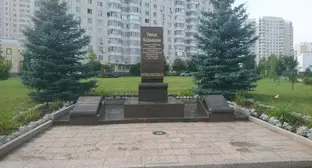12 January 2015, 09:00
Week in the Caucasus: review of main events of January 5-11, 2015
Accidents caused by bad winter weather in Southern Russia and countries of Southern Caucasus; Orthodox believers celebrate Christmas; rallies in Armenia and Georgia in memory of victims of terror attacks in Paris; resumption of broadcasting of Radio Liberty in Azerbaijan; terror act in Istanbul, committed by a suspected native of Northern Caucasus; start of trial in the United States of terror act in Boston against a native of Chechnya Johar Tsarnaev, – see the review of these and other events in the Caucasus during the week of January 5-11, 2015, prepared by the "Caucasian Knot".
Snowfalls, severe frosts and gale-force winds cause accidents in Southern Russia and countries of Southern Caucasus
Last week, bad weather caused problems for residents and visitors of almost all regions of Southern Russia and countries of Southern Caucasus – not without human victims.
A prolonged snowfall caused aggravation of the situation on roads of Georgia. On January 5, a threat of avalanches forced the authorities to close the Georgian Military Road and the Transcaucasian Highway. On January 6, in the Ninotsminda District, policemen evacuated about 200 people, blocked in their cars on the highway; and in the Lentekhi District, in Western Georgia, an avalanche covered two minibuses and interrupted communication with 16 villages. On January 7, on the road Stepantsminda-Lars, dead bodies of two citizens of Armenia were found; and on the road Ninotsminda-Akhalkalaki, the body of a 54-year-old man was found, who, according to preliminary data, died from frostbite. On January 8, Adjara was hit by a landslide, which blocking traffic for 24 hours at the 30th kilometre of the central highway Batumi-Akhaltsikhe. In the morning on January 10 another landslide came down onto the village of Tkhilnari, KhelvachauriMunicipality, cutting off three families from the outside world. The Poti Port was out of work for several days because of storm.
On January 8, a heavy snowfall significantly impeded the traffic on the roads of eight districts of Armenia. Since January 6, the SelimPass was closed; and the traffic on the highways Artik-Aragats, Landzhik-Sarnakhpyur, Kuchak-Aparan, and roads of the Ashotsk District. On January 11, the Armenian Ministry of Transport informed that due to a snowstorm and low visibility they closed the road Berd-Chambarak and the highway Stepantsminda-Lars; and traffic was hampered on several other highways. In the morning on January 9, because of heavy snow, they cancelled more than 20 bus routes from district centres to Stepanakert, the capital of the Nagorno-Karabakh Republic (NKR). The communication was restored only on January 10. A snowfall in the NKR was also the reason for restricting the traffic of cars on the highway Vardenis-Karavachar in the Shaumyan District.
A cold snap and a heavy snow were also marked in Azerbaijan. Due to bad weather, the drivers of the Baku International Bus Station were instructed not to use the highway Baku-Shamakhi. Because of icing, road accidents became significantly more frequent in Baku.
On January 5, a heavy snowfall in Rostov-on-Don caused heating system and power outages. The works on clearing snow from the streets of the city involved over 1000 persons; and by the morning on January 6, they removed over 3000 tons of snow from four districts of the city. In the evening on January 9, a heavy snowfall paralyzed the public transport in Sochi. Residents of the city reported traffic jams and delays of electric trains. Only on January 10, the roads were cleared, and the traffic resumed. Also, Sochi was affected by a mudflow, which damaged a barrack, where 20 people live.
On January 6, in Adygea, bad weather caused snow drifts on some sections of the highway running to the resort Lagonaki, resulting in traffic jams. Heavy snowfalls suspended the work of airports of Krasnodar, Anapa and Vladikavkaz; a strong wind suspended the operation of the Kerch ferry crossing. Karachay-Cherkessia, North Ossetia, Stavropol Territory, Adygea and Rostov Region opened warm-up centres on highways; and hundreds of people made use of them. On January 6, six cars were covered by snow avalanche in Mount Elbrus area; seven people blocked in the cars were rescued. The work of ski lifts was also suspended here.
Orthodox Christians of Southern Russia and Southern Caucasus celebrate Christmas
On January 7, believers of the Russian and GeorgianOrthodoxChurches, as well as of the Serbian and JerusalemChurches celebrated their Christmas. All the churches of Southern Russia held events on the occasion of this religious holiday. At night on January 7, the church services were attended by hundreds of thousands of believers. The holiday was accompanied by charity events and cultural festivals, which were held, in the regions of Southern Russia, under reinforced security measures. Tbilisi honoured the Christmas by the traditional procession "Alilo", during which people gathered gifts for orphans and the poor. Holiday events were held in churches of Azerbaijan. On January 6, inArmenia and Nagorno-Karabakh, parishioners of the ArmenianApostolicChurch celebrated the Theophany that combines Christmas and Epiphany.
Countries of Southern Caucasus commemorate victims of terror acts in Paris
The last week's series of terror acts in Paris received response in Southern Caucasus. On January 7, an attack on the editorial office of the satirical magazine "Charlie Hebdo" in the French capital claimed 12 human lives. The edition, while sticking to the leftish and secular positions, several times published caricatures on Islam and Prophet Muhammad. Just within three days, 17 people fell victim to the attackers. In two special operations, three attackers were killed.
On January 8, actions to commemorate the victims of the terror acts took place in many countries around the world. More than 500 people gathered for a rally in Tbilisi in memory of the casualties near the French Embassy. The participants of the rally condemned the terror act and expressed solidarity with the journalistic community in France. On January 8, the participants of the memory action in Yerevan said that the attack on the "Charlie Hebdo" weekly was aimed against the freedom of speech. In the Armenian capital, actions were held for several days. Earlier, the "Charlie Hebdo" was criticized by Muslims of Azerbaijan, but after the events of this January in Paris, the official Baku and members of the country's religious communities have condemned the terror act.
No information has arrived about any actions in connection with the terror acts in Paris held by residents of Northern Caucasus. Scholars of Islam Akhmet Yarlykapov and Alexei Malashenko have explained the restrained reaction of Muslims of Northern Caucasus to the events in France, anti-Islamic rhetoric and, in general, to the problem of publication of Prophet Muhammad cartoons by the fatigue from the conflict in their region.
Azerbaijan: Radio Liberty partially resumes broadcasting after a two-week break
In Azerbaijan, on January 7 after a two-week break, the local office of Radio Liberty partially resumed its broadcasting live on air with a half-hour programme "Azadliq LIVE" (Liberty Live). The broadcast is performed, in the restricted mode, from the head office of Radio Liberty in Prague. The programmes can be listened to on the website of the Azerbaijani Service of Radio Liberty – Azadlıq. Besides, broadcasting is performed through the satellites Hotbird and Türksat. In future, it is expected to increase the time on air, said the Azerbaijani Service of Radio Liberty, whose office in Baku is closed since December 26, 2014, after searches and interrogations of radio employees at the prosecutor's office. Law enforcement bodies have explained these actions by investigation of the case on money laundering. The Azerbaijani Service of Radio Liberty, in its turn, said that they had worked in a completely transparent manner; by timely paying taxes and other social payments.
Native of Northern Caucasus suspected of committing terror act in Istanbul
On January 6, in the historical centre of Istanbul, a woman committed a terror act, which killed one policeman and wounded another one. The woman also perished. On the same day, some Turkish mass media, referring to the Ministry of Internal Affairs (MIA) of Turkey, spread information that the female suicide bomber was identified as a native of Russia and a Russian citizen Diana Ramazova, who arrived in Turkey as a tourist in June 2014 and, supposedly, was a native of Chechnya. According to other sources, the terror act in Istanbul was committed by a native of Dagestan Diana Ramazanova. Chechnya has already announced that Diana Ramazova has nothing to do with the republic. The name of such a woman is not among those who received their foreign passports in Chechnya, said a source from the local MIA.
USA start trial on terror act in Boston against a native of Chechnya Johar Tsarnaev
On January 5, the court in Boston began selecting the jurymen for the case of a native Chechnya Johar Tsarnaev, accused of committing a terror act during the Boston Marathon in April 2013; the state prosecution demands death penalty for him. The selection of the jury is the first stage of the consideration of the case on the merits; over 1200 candidates were invited to the procedure for jury selection. After the court and the parties in the trial study the candidates' profiles, they will be invited to the court for personal interviews. These interviews will be held not earlier than January 15; and the trial as such will begin on January 26. Prior to the court session on January 5, it became known that the defence and the prosecution had been negotiating for months on the possibility of a judicial deal. It was discussed that if Tsarnaev pleads guilty, he will be sentenced to lifelong imprisonment without the right to early relief; however, the parties failed to come to an agreement.




